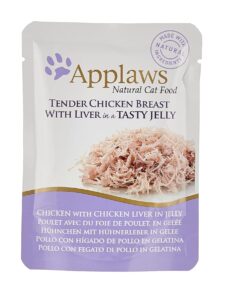Veterinary Formula Clinical Care
EFFECTIVE | AFFORDABLE | CLINICAL CARE
Product Details
Fleas:
Dogs & other warm-blooded animals are especially prone to catching fleas in warm-weathered climates or during the summer months when air temperatures and humidity levels are high. Dogs can catch fleas from other furry friends, or from the environment. Fleas use their strong back legs to jump on the “host” (your dog) and then bite the animal. These bites can cause itching, hair-loss & hot-spots from itching, inflamed lesions and even skin infections. You may also notice small dirt-like particles on your pet – which is flea feces and digested blood.
The female fleas can live up to a few weeks on your pet, and may lay between 20-30 eggs a day during that time. Some eggs will hatch into larvae on your pet, while the others fall off, into your home environment – where they feed off skin scales and other organic matter. Pet parents must treat both the dog as well as the inside & outside home environments.
Symptoms:
- Droppings or “flea dirt” in a dog’s coat.
- Flea eggs on dog or in dog’s environment.
- Allergic dermatitis
- Excessive scratching, licking or biting at skin
- Hair loss
- Scabs and hot spots
- Tape worms
- Pale gums
Ticks:
Ticks are parasitic anthropods that attach themselves and feed off warm hosts, such as your dog. Ticks are usually found in the wooded areas, in long grass, and plants. Dogs that spend a lot of time outdoors are prone to encountering a tick at any given time. When your dog does, the tick can attach and lock its mouth into a crevice or fold and begin to feed on blood – sometimes even feeding for days. Besides being gross, ticks cause major concern for animals and people alike because of a high-risk for transmitting diseases such as Lyme, Ehrlichiosis, Rocky Mountain Spotted Fever, or Babesiosis. A tick bite can also cause anemia, joint-swelling, fever, and paralysis. If your pet displays any signs of illness, and you suspect he/she was bitten by a tick, consult your veterinarian immediately. Always check your pet for ticks if they’ve been running around outside, especially in wooded areas.
More Information:
- Protection against fleas and ticks for up to 14 weeks.
- Easy to use spray can be used on dogs over 6 months.
- Prevents re-infestation and the development of flea larvae and eggs.
- Kills fleas and ticks on contact, a great way to treat affected areas.
- Contains the natural insecticide called pyrethrum.
Description:
Also prevents re-infestation and the development of flea larvae and eggs.
Fleas and ticks can cause undue skin irritation and can even infect your dog with disease. This unique spray uses the natural insecticide, pyrethrum to kill fleas and ticks on contact.
Veterinary Formula Flea & Tick Spray for Dogs also includes Nylar® to prevent the development of flea larvae and eggs and permethrin to give long-lasting protection against adult fleas to prevent re-infestation.
Product Benefits
- Pyrethrum: Pyrethrum is the natural insecticide and pest repellant made from chrysanthemum’s – using the dried flower heads which are poisonous, pyrethrum exposure may cause pruritus (itching), red skin, sneezing and other dermatological issues if there is a reaction.
- Paraben-Free: Parabens have been found to mimic estrogen in the body- and when levels are disrupted, a link has developed with breast cancer & reproductive issues. All our formulas are Paraben-Free, to promote the safety, well-being and health of your pet.
- Kills Fleas & Ticks on Contact: Formulated with pyrethrum for maximum control of fleas.
- Dye-Free
Direction Of Use
For Use on Dogs Only:
Spray animal with spray nozzle about 8-12 inches from the pet. Start spraying animal at the tail, making sure to spray entire coat of the animal, including legs, tail, and underbody. With your hand, fluff hair against the way it normally lays to ensure the spray penetrates through coat to the skin. Refer to chart of instructions in the bottle to apply the appropriate amount of product to animal. Do not exceed the maximum number of pump spray applications for animal’s body weight. Do not saturate the animal and do not spray in face or eyes or on genitals. Repeat as required, but not more often than once every 14 days (2 weeks).
For Use in Dog Areas:
Treat dog bedding and other pet resting places, as these are primary hiding areas for fleas and ticks; no need to remove pet bedding after treatment. To reduce infestation, spray around sleeping areas, baseboards, window and door frames, wall cracks, local area of floors, and other resting places until the surface of dog houses and kennels. Do not allow pets to use treated areas until completely dry. For best results, to protect your pet against and to minimize reintroduction of adult fleas from outdoors, use EPA registered flea and tick products.








Reviews
There are no reviews yet.